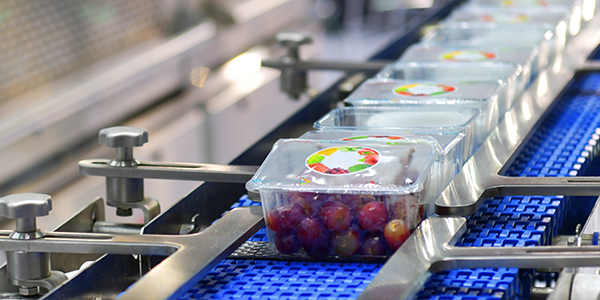In today's diligent consumer landscape, the demand for morally sourced and also lasting items has actually surged. Private label food manufacturers have become pioneers in this domain, usually collaborating with agreement food makers to spearhead sustainability as well as responsible sourcing campaigns. With an undaunted commitment to ecological ethics, exclusive label brand names have actually made it their goal to deliver sustainable, high-grade alternatives to consumers.
Private Label Food Manufacturers
Over the last few years, private label food manufacturers, additionally called own brand names or shop brands, have actually experienced a remarkable surge in popularity. These suppliers create products offered under the logo of a store, grocer, or private entity. What sets private-label products apart is their ability to supply affordable pricing without jeopardizing on quality.
Agreement Food Manufacturers
Several private-label food suppliers sign up with pressures with agreement producers to establish their product. Contract food suppliers are experts in creating food products for exclusive labels. This strategic collaboration http://arthurlebc200.huicopper.com/discovering-the-benefits-of-private-label-food-products permits exclusive label companies to take advantage of the competence, sources, and also committed food manufacturing centers of their partners.
Sustainability at the Core
Private label food manufacturers use numerous approaches to enhance sustainability within their supply networks:
Moral Sourcing:
Personal label business are progressively devoted to sourcing active ingredients according to moral and reasonable profession criteria. This requires making sure that producers as well as workers of basic materials, such as coffee beans, spices, or cacao, receive fair compensation for their initiatives.
Regional Sourcing:
Focusing on local sourcing of active ingredients is an additional trademark of private-label food manufacturers. This not just decreases the carbon impact associated with transportation however also sustains neighborhood farmers and areas.

Organic Ingredients:
With the organic food market on the rise, personal labels are responding by integrating natural components into their product. Organic farming practices prioritize soil wellness while shunning synthetic chemicals and plant foods.
Sustainable Seafood:
Private Label Food Manufacturers are thorough in ensuring that the fish and shellfish they utilize is sustainably gathered, sticking to standards established by organizations like the Marine Stewardship Council, which advertises responsible angling.
Lowered Food Waste:
Private label firms are proactively servicing minimizing food waste by carrying out effective manufacturing procedures as well as creating products with longer service life. Some brand names are additionally partnering with food rescue companies to contribute surplus food to those in demand.
Eco-Friendly Packaging and Efforts

Sustainability initiatives by private-label food manufacturers extend past sourcing active ingredients to include packaging and green initiatives:
Sustainable Product packaging:
Personal label brand names have embraced eco-friendly product packaging alternatives, consisting of recyclable, biodegradable, or compostable products. Redesigning product packaging to lessen excess material and also minimize environmental impact is a leading concern.
Waste Reduction:
To decrease wastefulness, private-label food suppliers enhance item dimensions, decrease excess packaging, and check out innovative product packaging solutions. Some brand names also motivate clients to take part in reusing programs.
Power Efficiency:
Lots of exclusive label manufacturers are purchasing even more energy-efficient manufacturing plants, minimizing water usage, as well as adopting renewable energy sources to further reduce their ecological footprint.
Carbon Neutral Initiatives:
Some exclusive brand food producers are taking enthusiastic actions to attain carbon nonpartisanship by countering their greenhouse gas emissions via reforestation tasks as well as renewable resource credit reports.
Obstacles and the Roadway Ahead
Despite the considerable strides made in sustainability and accountable sourcing, private-label food makers face difficulties. Stabilizing sustainability with cost-effectiveness can be a fragile act, often needing compromises on lasting components or the expedition of environment-friendly alternatives.
However, the future of private-label food manufacturing holds terrific promise. As consumer understanding and also demand for lasting items continue to climb, private-label brands and also their contract food manufacturing companions are likely to increase their initiatives. Cooperation with distributors as well as investment in sustainable technological breakthroughs as well as openness will certainly be essential fit a sustainable future for the sector.
Frequently Asked Concerns
Q1: What are private label food manufacturers?
Private label food manufacturers generate products sold under the logo of a retailer, grocer, or private entity. They offer competitively valued products without endangering on high quality.
Q2: How do private label food manufacturers promote sustainability?
Private label food manufacturers advertise sustainability through moral sourcing, local active ingredient procurement, making use of natural ingredients, lasting fish and shellfish practices, and efforts to reduce food waste.
Q3: What eco-friendly product packaging options do exclusive label brand names utilize?
Exclusive label brands embrace environmentally friendly product packaging alternatives such as recyclable, naturally degradable, or compostable products. They likewise revamp product packaging to decrease excess product and also decrease environmental effect.
Q4: What challenges do private label food manufacturers deal with in sustainability efforts?
Balancing sustainability with cost-effectiveness is a major challenge for private label food manufacturers. This might need concessions on sustainable active ingredients or the expedition of green alternatives.
Conclusion
Private label food manufacturers go to the leading edge of the sustainability and also liable sourcing movement within the food industry. Their commitment to honest sourcing, regional procurement, organic active ingredients, and lasting techniques, as well as their commitment to green product packaging and also waste reduction campaigns, demonstrate their resolution to satisfy the demands these days's eco-conscious consumers.
Despite the challenges they face, private label food manufacturers are positioned for a promising future. With consumers significantly prioritizing sustainability, the sector is likely to witness even higher collaboration with vendors, financial investment in lasting technologies, and also a dedication to transparency. As we progress, private label food manufacturers will remain to play a vital role in shaping an extra lasting and also moral food landscape for all.